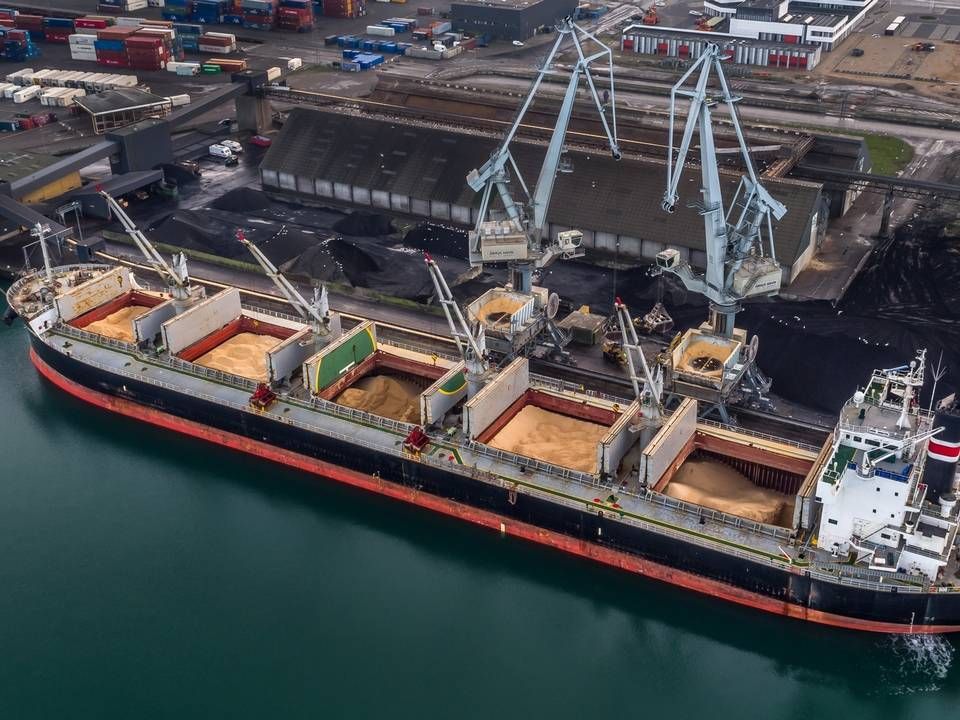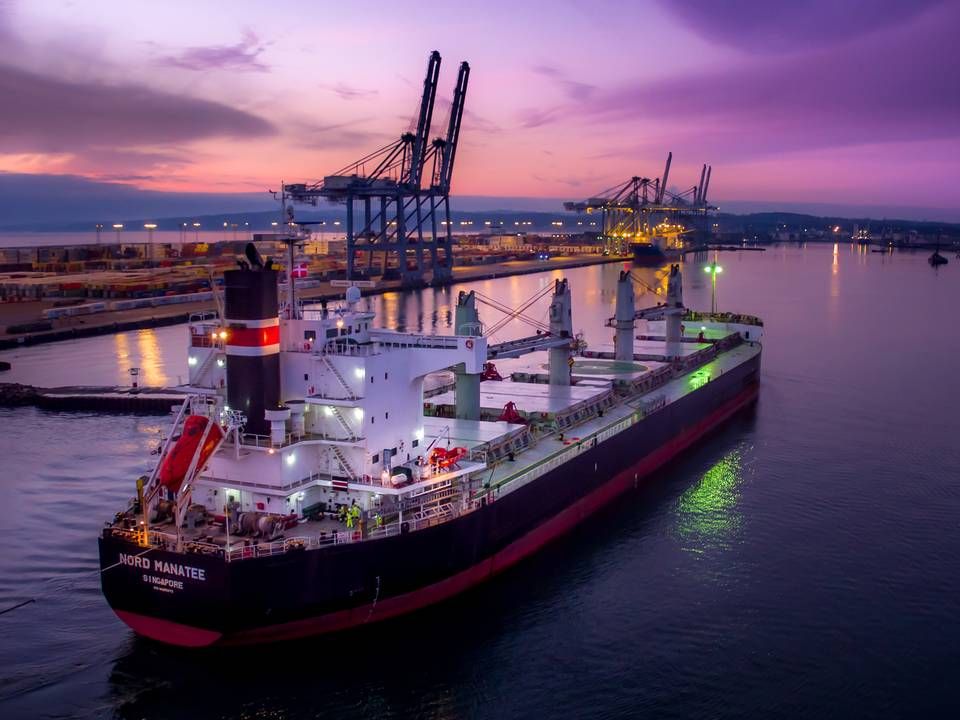Norden is "taking market shares" to profit off the dry bulk upturn

Norden has spent the first months of the year carrying out a large-scale upgrade of its dry bulk business to position the company for what CEO Jan Rindbo describes as a booming market.
And the market that could continue for the next few years, says the Danish dry bulk and product tanker carrier after a first quarter in which the bottom line ended in the red, while the group upgraded its full-year outlook for 2021 as a whole.
In the first months of the year, the dry bulk business, Dry Operator, ended with a zero on the bottomline. But this result is attributable to the fact that all resources have been spent on building out the fleet with more ships and cargoes.
"It's been a great quarter for Norden, although that may not be directly evident from the result. But we built a very strong position in Dry Operator during the quarter, which will benefit us for the rest of the year," says Rindbo in an interview ShippingWatch.
Norden upgrades outlook despite first quarter deficit
He believes that the strong dry bulk market is here to stay.
In the first months of the year, Norden increased its dry bulk fleet to an average of 322 vessels.
"Dry Operator increased its activity 31 percent in the first quarter, which means we're taking market shares and have a larger operated fleet in a booming market. And that business, we think we can definitely continue to grow," says the CEO, who describes the current upturn as "having a broad base."
Upturn for all ship types
And the big dry bulk ships such as capesize are not the only ones benefiting from the current upturn.
The surge in demand also affects vessels in the supramax, panamax and handysize segments, which are the ones Norden is particularly active in. This puts the carrier in a good position, says the CEO, as the smaller ship types are more agile and can therefore adapt to the market quicker.
Another factor also plays into the positive expectations.
"Normally when you have a strong quarter, people run out and buy too many vessels. But the start of 2021 has been somewhat untraditional in this sense," explains Rindbo.
"What's happened in this quarter, which is a little different, is that in this quarter container carriers and container shipowners have been the ones that have ordered a bunch of ships, filling the shipyards," says Rindbo, who points out that the lack of orders has helped create a historically low orderbook in dry bulk.
He also points out that Norden currently has 72 options on a series of ships, which can be executed upon as prices and levels continue to rise. The options are divided between 51 options on dry bulkers and 21 options on tankers.
Meanwhile, however, there is also a spill-over effect from the intense container market in which record-high demand and capacity shortages have led to bottlenecks and delays, which makes it both more expensive and difficult for shippers to transport goods from particularly Asia to the rest of the world.
These conditions have led customers to look to other sectors, including dry bulk.
"There's an effect from there, but it's not huge. It is, however, evident that it's something that helps support the solid rates," says Rindbo.
India causes uncertainty
The current developments in India, where a resurgence of coronavirus contagion has put the country back into lockdown, however, causes some uncertainty in the market.
"It's worrying to see what's happening in India. It means we have some operational disruptions. Both in the industry and in our business. There are, for example, still challenges in terms of crew changes and there are countries with restrictions," says the Norden CEO.
"This helps create inefficiencies in the market, which also helps skyrocket rates as it leads to fewer ship days," explains Rindbo.
In general, he points to the coronavirus pandemic and its associated uncertainties as the biggest challenge facing Norden, and the rest of the shipping industry for that matter.
"We're in the middle of the pandemic. Although we in Europe and North America may be able to start seeing the light at the end of the tunnel, keep in mind that we currently have the highest number of Covid-19 infections seen to do. So the pandemic is clearly still a concern."
English Edit: Ida Jacobsen
Related articles
Norden upgrades outlook again despite first quarter deficit
For subscribers
Norden significantly upgrades its 2021 guidance
For subscribers
Norden's chairman calls Israel-instructions "inappropriate"
For subscribers




















